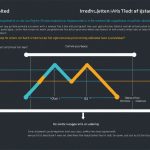Key Breakthroughs in UK Computing
Recent advancements in UK computing have positioned the nation at the forefront of several cutting-edge technology domains. Among these, Artificial Intelligence (AI), quantum computing, and next-generation hardware developments stand out as pivotal breakthroughs driving innovation across industries.
The UK has made significant strides in AI research, focusing on machine learning algorithms that enhance natural language processing and computer vision. These innovations facilitate smarter automation and decision-making tools. Additionally, quantum computing efforts, particularly in developing scalable qubits and error correction methods, promise to revolutionize computational speed and security. UK’s investments in hardware, including advanced semiconductor design and energy-efficient processors, further support this rapid technical evolution.
Topic to read : What is the future of 5G technology in the UK computing landscape?
Leading research institutions such as the University of Cambridge, Imperial College London, and tech hubs like the Alan Turing Institute play central roles in advancing UK computing. Their projects often bridge theoretical foundations with practical applications, thereby accelerating innovation. Simultaneously, UK companies contribute actively to the global tech landscape by commercializing these breakthroughs, fostering startups, and collaborating internationally.
These UK tech breakthroughs underscore the country’s commitment to nurturing an ecosystem where cutting-edge research, industry, and education intertwine. The resulting technologies not only enhance computing capabilities but also establish the UK as a global innovation leader.
In parallel : What Are the Benefits of 5G Technology for UK Enterprises?
Sectors Poised for Transformation by New Computing Technologies
New UK computing advancements are set to radically reshape multiple industries, delivering smarter, faster, and more efficient solutions. The impact on UK industries is particularly evident in healthcare, finance, and transportation, where future technology applications create avenues for enhanced productivity and innovation.
In healthcare, the integration of AI diagnostics enables earlier and more accurate disease detection, streamlining clinical decision-making. Personalised medicine benefits from data-driven insights tailored to individual patient profiles, improving treatment outcomes. Advanced data analytics also supports large-scale health monitoring and epidemiology, enhancing public health strategies.
The financial sector experiences transformation through algorithmic trading systems that execute complex transactions at unprecedented speeds. Fraud detection algorithms use machine learning to identify suspicious activity, bolstering security. Meanwhile, secure transaction technologies capitalize on quantum-resistant encryption methods, safeguarding financial exchanges against emerging threats.
Transportation and logistics innovate via autonomous vehicles, which promise to reduce accidents and optimize traffic flow. Smart infrastructure, embedded with sensors and connected networks, enables real-time monitoring and adaptive responses to changing conditions. Additionally, real-time data processing enhances route planning and supply chain visibility, generating cost savings and reliability.
These sector innovations exemplify the broad scope of sector innovation UK. By harnessing the latest UK technologies, industries are not only improving operational efficiency but also pioneering new business models that will define the future economic landscape.
Real-World Applications and Early Adoption Case Studies
Early adoption of UK computing advancements offers tangible proof of how emerging technologies are reshaping industries. Numerous UK computing case studies highlight pilot programmes where AI, quantum tools, and next-generation hardware deliver real benefits.
In healthcare, several NHS trusts have implemented AI-driven diagnostic systems that improve accuracy and reduce analysis times. These emerging tech applications demonstrate how AI assists clinicians by interpreting imaging or patient data more effectively. For example, projects using machine learning algorithms have led to earlier detection of conditions such as cancer or diabetic retinopathy, improving patient outcomes.
UK startups have played a crucial role in accelerating innovation by rapidly bringing new solutions to market. Collaborative ventures between universities and industry giants often facilitate knowledge transfer and practical deployment. One leading tech hub recently showcased a quantum computing pilot optimizing logistics scheduling, yielding faster, cost-efficient routing which was previously unattainable. These real-world examples emphasize the close link between theoretical research and practical impact.
Scalability remains a focus, with many early projects exploring how promising technologies can expand beyond initial trials. Challenges such as integration with existing infrastructure, training requirements, and regulatory compliance require careful consideration. Nonetheless, lessons learned from early adopters provide valuable insights that guide future investments and deployment strategies.
These UK computing case studies confirm that early adoption is crucial to unlocking the potential of the latest UK technologies. They underscore how piloting in real environments accelerates refinement, drives sector innovation, and establishes frameworks for widespread use.
Key Breakthroughs in UK Computing
Recent UK computing advancements have notably accelerated through pioneering efforts in Artificial Intelligence (AI), quantum computing, and next-generation hardware innovation. The UK’s commitment to advancing these fields reflects strategic focus areas that promise transformative impacts both domestically and globally.
In AI, the UK has developed sophisticated machine learning models that improve natural language understanding and autonomous decision-making. These breakthroughs enhance computational reasoning, enabling more effective automation and data interpretation across various sectors.
Quantum computing progress centers on refining qubit stability and developing error correction protocols, enhancing computational power exponentially compared to classical systems. The UK leads in creating scalable quantum architectures that position it as a frontrunner in this cutting-edge domain.
Hardware innovation complements these software advances through energy-efficient processor designs and advanced semiconductor technologies. This synergy produces faster, more reliable, and sustainable computing infrastructure required to support emerging applications.
These UK tech breakthroughs emerge from collaborations between leading universities such as the University of Oxford and Imperial College London and research institutions like the Alan Turing Institute. Their work bridges foundational science with applied innovation, resulting in impactful projects that have attracted significant investment and commercial interest.
UK companies actively capitalize on these advancements by translating research into viable products and services. This dynamic interplay between academia and industry fosters a robust ecosystem that drives innovation and positions the UK competitively on the global stage.
Together, these developments underscore the significance of latest UK technologies as foundational pillars propelling the nation’s technological leadership and future-ready computational capabilities.
Key Breakthroughs in UK Computing
Recent UK computing advancements embody a synthesis of sophisticated Artificial Intelligence (AI) models, innovative quantum computing efforts, and progressive next-generation hardware development. These UK tech breakthroughs are pivotal in shaping both the domestic and international technological arenas.
At the forefront, AI innovations have grown beyond basic automation to include refined natural language processing and autonomous decision-making systems. These enhancements significantly boost computational reasoning capabilities, impacting sectors requiring nuanced data interpretation. Quantum computing in the UK focuses intently on improving qubit coherence times and error correction algorithms, leading to scalable architectures that promise exponential speedups over classical computing methods.
In hardware, the emphasis rests on developing energy-efficient processors and cutting-edge semiconductor fabrication techniques. Such advancements are critical to supporting the increasing computational workloads that AI and quantum systems demand. These findings arise from well-coordinated research efforts at institutions like the University of Cambridge, Imperial College London, and the Alan Turing Institute, where collaboration between academia and industry fuels practical innovation.
UK companies contribute actively by translating these research breakthroughs into commercially viable technologies. This synergy between latest UK technologies and entrepreneurial application not only enhances the global competitive stance of UK computing but also catalyzes new markets and business models.
Collectively, these combined efforts confirm the UK’s position as a leader in harnessing advanced computational breakthroughs, establishing a resilient foundation for future technological progress.
Key Breakthroughs in UK Computing
The latest UK technologies reveal significant progress across AI, quantum computing, and next-generation hardware, reaffirming the nation’s position in the global tech arena. In AI, advancements now enable more sophisticated machine learning models that improve not only natural language processing but also autonomous decision-making capabilities. These improvements translate into smarter applications capable of handling complex reasoning tasks, directly benefiting sectors such as healthcare and finance.
Quantum computing breakthroughs focus heavily on enhancing qubit coherence times and refining error correction methods, which are essential to building scalable and reliable quantum systems. UK research institutions, including Imperial College London and the Alan Turing Institute, have developed novel quantum architectures that exponentially increase processing power over classical computers.
In hardware development, innovations emphasize energy-efficient processors and advanced semiconductor designs tailored to support the computational demands of AI and quantum systems. Efforts in this domain ensure faster and more sustainable computing infrastructure, underpinning many of the UK’s tech breakthroughs.
These UK computing advancements thrive on strong collaboration between academia and industry. Universities like the University of Cambridge play a pivotal role by conducting foundational research that directly feeds into practical technology development. Simultaneously, UK companies actively commercialize these advances, fostering an ecosystem where innovation rapidly translates into market-ready solutions.
Together, these breakthroughs illustrate a comprehensive approach that combines cutting-edge research, strategic investments, and industrial application, driving the UK’s leadership in next-generation computing technologies.






